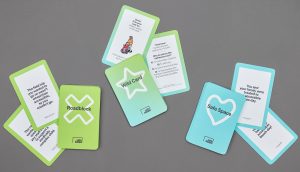How can publishers monetize their digital assets in a complex programmatic advertising space?
A serial entrepreneur from Waterloo named Chris Reid says he has a monetization solution that will take the pressure off figuring out how, where and when to target ads by letting a machine compute those results through a tried-and-tested algorithm.
Reid has announced the launch of Sortable, and yes – don’t groan – it’s ad tech. Sortable is a machine-learning-based ad optimization engine that sorts through data from ad networks to help manage a publisher’s ad inventory and increase revenue-per-thousand impressions. According to Reid, Sortable can access dozens of ad units for display and mobile across the world and can then match it to online consumers by finding the right combination of placement, timing and demo.
Reid says his product’s ad engine analyzes about a billion impressions each month. It factors in geography, device type, session depth, speed, bids and other data. It then facilitates real-time decision making about which ad network will best fill each ad impression. The size and scope of the ad network market makes it difficult for human teams to do this kind of matching efficiently, says Reid.
At the moment publishers are working to navigate the ad-tech market mostly by hand (read, human). Individual teams figure out how to establish the best prices for their inventory, develop the right brand partnerships and make decisions about the best format to reach their audiences.
But Reid says that’s just not possible giving the kind of scale and volume in the online space. “It turns out that that kind of optimization problem is a big data machine-learning problem not a problem suited for static, human decision making,” explains Reid. There is no other way to do efficient monetization in the programmatic space, he contests.
To ensure that he didn’t come to market with an untested solution, Reid and his team put Sortable into beta mode in fall of 2014 in the U.S. and Europe. Since then the company has tested with over 100 publishers. About 80% of the company’s clients are based in the U.S. and Reid estimates about 10% are in Canada.
However, when asked to share data from some of these in-beta test, Reid says he’s bound by client relationships and can’t share that kind of information.
Sortable received $1.4 million of seed funding last year.























